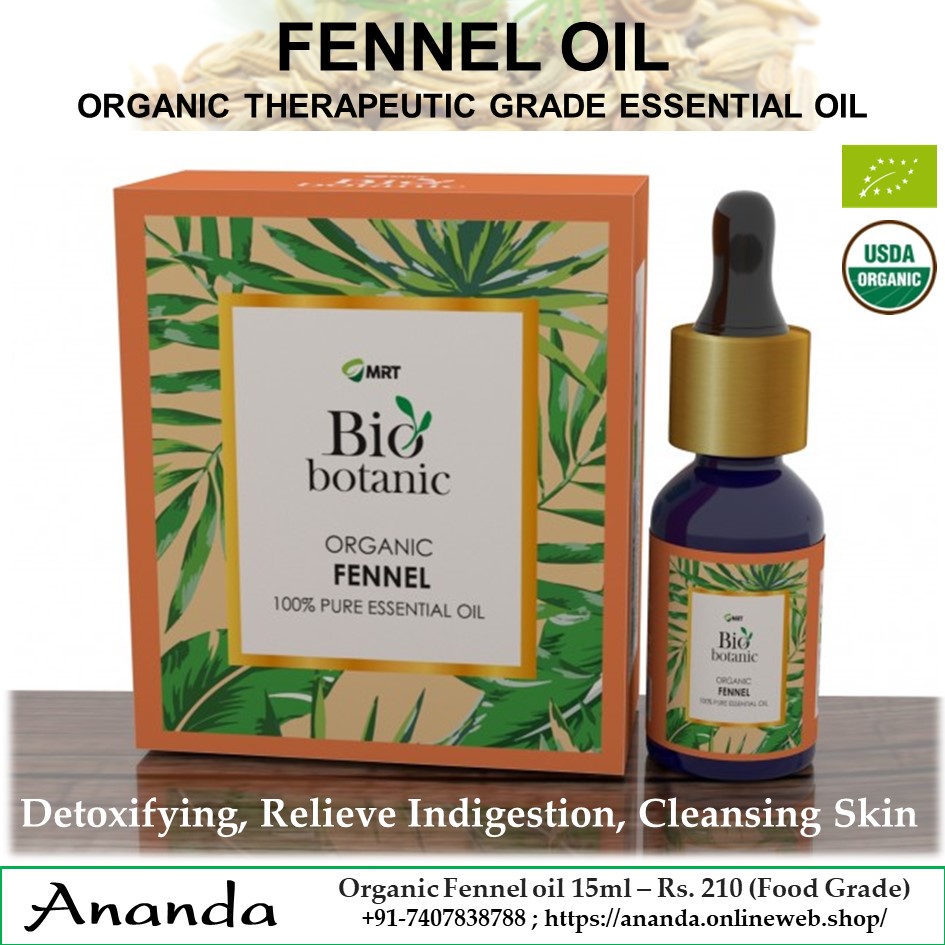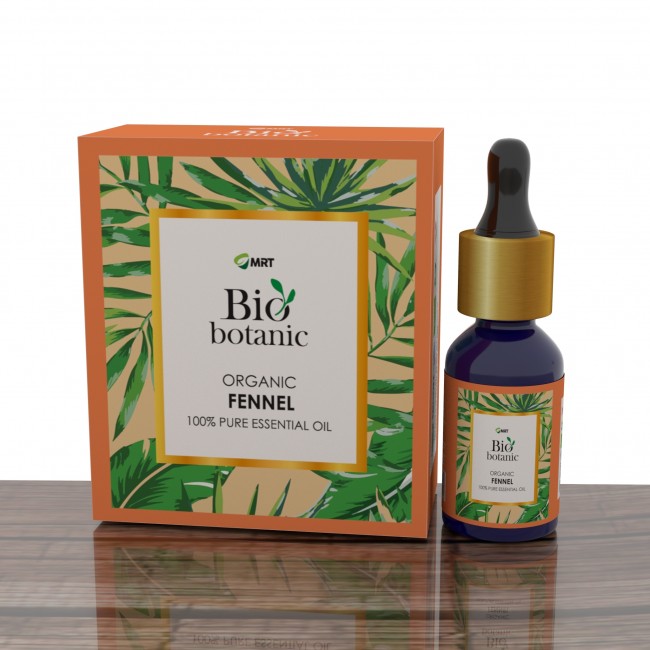


BOTANICAL NAME: Trachyspermum ammi
Our fennel essential oil is extracted from Foeniculum vulgare var. dulce, which is sweet fennel (also known as F. officinale, F. capillaceum and Anethum foeniculum) of the Umbelliferae (Apiaceae) family and is also known as fenkel and Roman fennel. This essential oil is used in aromatherapy to boost your courage, resolve and strength in the face of adversity, while helping a huge array of digestive problems, fighting obesity, clearing an oily skin and fighting wrinkles.
OIL PROPERTIES
Fennel oil has a herby, slightly spicy smell, much like aniseed and it is clear in viscosity.
ORIGIN OF FENNEL OIL
The name is from the Latin word 'foenum' which means 'hay'. It grows up to 2 meters (6 feet) in height and is a biennial or perennial herb, with green feathery leaves and golden yellow flowers, that bees like.
In Medieval times it was known as 'Fenkle' and was a very popular herb with the ancient Chinese, Egyptians and Romans, who believed it conveyed longevity, courage and strength, as well as warding of spirits. Not only did they use it to strengthen eyesight, but they also used it for snakebites, colic and to rid dogs of fleas.
EXTRACTION
Sweet fennel oil (the one we sell) is extracted from crushed seeds by steam distillation and yield 2 - 4 %.
Bitter fennel oil, not used for aromatherapy, is extracted from the crushed seeds and/or the whole herb of the Foeniculum vulgare var. amara plant.
CHEMICAL COMPOSITION
The main chemical components of fennel oil are a-pinene, myrcene, fenchone, trans-anethole, methyl chavicol, limonene, 1,8-cineole and anisic aldehyde.
PRECAUTIONS
Sweet fennel oil is powerful and shouldn't be used in large doses, as it may have a narcotic effect. It should be avoided altogether in pregnancy and cases of epilepsy.
It contains high amounts of trans-anethole and for that reason people with estrogen linked cancers, as well as breast-feeding mothers, pregnant women and women suffering from endometriosis should rather avoid it.
Bitter fennel (not sold by us) is not used in aromatherapy and should not applied to the skin at all.
THERAPEUTIC PROPERTIES
The therapeutic properties of fennel oil are aperitif, antiseptic, antispasmodic, carminative, depurative, diuretic, emmenagogue, expectorant, galactagogue, laxative, stimulant, stomachic, splenic, tonic and vermifuge.
USES
Fennel oil is a remedy for digestive complaints such as flatulence, constipation, colic, nausea, vomiting, anorexia, dyspepsia and hiccups. It is also used in cases of obesity, as it promotes that 'full feeling' and has a diuretic effect that helps to disperse cellulite.
For the mind, it adds courage and strength in the face of adversity. It has a cleansing and toning effect on the skin, helping with bruises, sorting out overly oily skin and to fight wrinkles in more mature complexions (possibly due to the estrogenic properties of the oil).
It has a toning effect on the spleen and liver, that helps with the results of excess drink and food. It is also used for increasing insufficient milk in nursing mothers - but for boosting breast milk, rather use the fresh herb, since the oil contains very high concentrations of trans-anethole.
CERTIFICATION
MRT gives the product which is grown under the stringent organic standards of NPOP, NOP, and EU certification by LACON, GERMANY.
